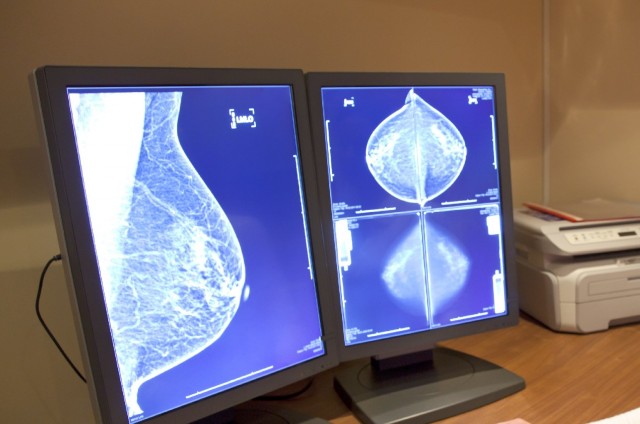Then there's the "insurance paid" price. These prices are quite interesting because they differ dramatically, according to what insurers have negotiated with providers. It's virtually impossible for people to know what they are because, as I told Myrow, "those payments are not public; they are sealed in contract negotiations."
Myrow asked the question that practically everyone asks when you start discussing specific costs of health care procedures. "I'm used to bargain hunting for toilet paper," she said, "but is it a good thing to bargain hunt in health care?"
Yes, it can be, I told her. "There's no correlation between cost and quality in health care, so it's entirely possible that the place down the street, that's a lot cheaper, will be just as good on quality."
Rebecca Plevin at our partner KPCC talked to Annie Brown of Toluca Lake, whose insurer appeared to pay 10 times more for her mammogram than the least expensive location in Los Angeles. It was Brown's first mammogram, so she could not compare it with others, but, she noted, "It was a friendly technician, but I don't know if it was worth maybe $600 extra."
Even if you have employer-provided health insurance, those 600 extra dollars are coming out of your pocket, just indirectly. To your employer, your health insurance premium is part of your total compensation. So, as health costs rise — which they are — your employer's ability to offer you a raise goes down.
Then there are the taxes you pay. Nearly one-third of Americans are covered by the government-sponsored Medicare and Medicaid. Costs are rising fast for these programs too, paid for by tax dollars.
Many people have asked us why we're sampling prices on mammograms, since the Affordable Care Act mandates that this (and some other) screening tests must be covered at no cost to consumers. We picked mammograms because we wanted a procedure that lots of people have (37 million every year) and we wanted a procedure that could be scheduled. We recognize that someone is not going to shop on price after he or she has been in a car accident or is suffering some other life-threatening condition.
I invite you to share what you paid. Get a bill or your insurance "explanation of benefits" — and visit PriceCheck. The more prices shared that we have, the more we can help to make health costs more transparent in California.
KQED's Newsroom also featured PriceCheck in a recent program. Below host Scott Shafer interviews me about health costs broadly and PriceCheck specifically. Please watch!
